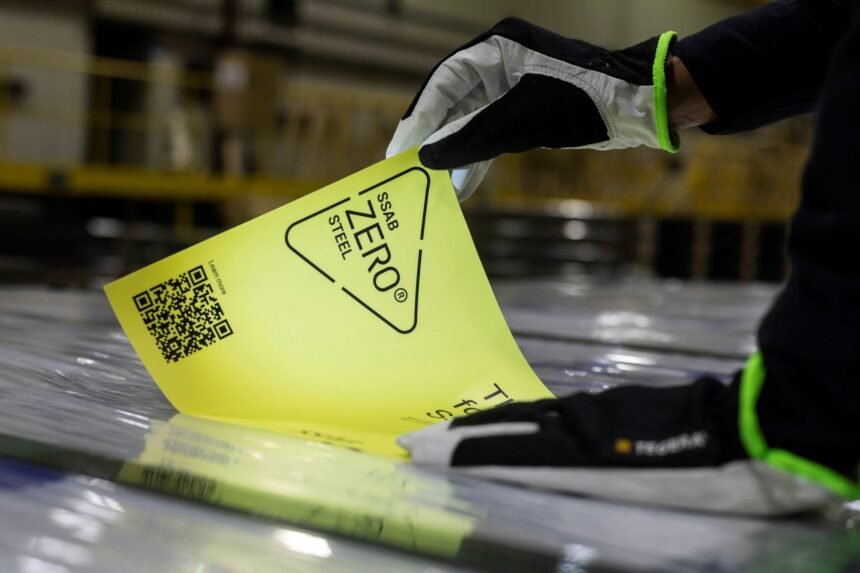Volvo Cars has taken a significant step towards sustainability by signing a supply agreement with Swedish steel firm SSAB for the supply of recycled and near zero-emissions steel starting from 2025. This makes Volvo Cars the first car maker to sign such an agreement for recycled, near zero-emissions steel for series production deliveries.
The collaboration between Volvo Cars and SSAB aims to be at the forefront of the transition to more sustainable steel. The agreement not only involves buying recycled and near zero-emission steel but also includes selling scrap steel, contributing to Volvo Cars’ circular ambitions by keeping materials at the highest value for the longest period of time in a closed-loop system.
Francesca Gamboni, Volvo Cars’ chief supply chain and manufacturing officer, highlighted the importance of reducing CO2 emissions in the production process, with steel accounting for 25 percent of all material-related emissions for a new Volvo car. By transitioning to recycled steel, Volvo Cars aims to achieve net-zero greenhouse gas emissions by 2040.
The recycled steel will be used in selected components of the upcoming fully electric EX60 SUV and other cars based on Volvo Cars’ next-generation SPA3 car architecture. Volvo Cars ensures that the recycled steel meets safety-related requirements in terms of strength and durability.
SSAB’s closed-loop system for recycling scrap steel significantly reduces CO2 emissions and keeps materials and natural resources in use for longer. Compared to traditionally produced steel in Europe, SSAB’s recycled steel generates almost 100 percent less CO2 emissions in its operations and is made with a recycled content of nearly 100 percent.
Volvo Cars is committed to a fully electric future and aims to achieve net-zero greenhouse gas emissions by 2040. The company plans to reduce CO2 emissions per car by 65-75 percent compared to a 2018 baseline by 2030. The agreement with SSAB aligns with Volvo Cars’ circularity ambitions to use an average of 30 percent recycled content across the fleet by 2030 and have new car models released from 2030 contain at least 35 percent recycled or bio-based content.
This collaboration with SSAB not only reduces the environmental impact of steel production but also supports Volvo Cars’ sustainability goals. By integrating recycled steel into its production process, Volvo Cars is taking a significant step towards a more sustainable future.







